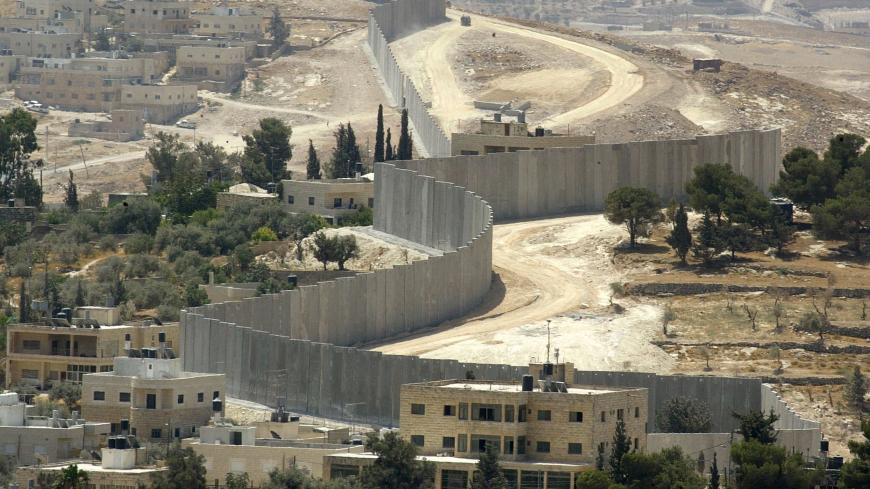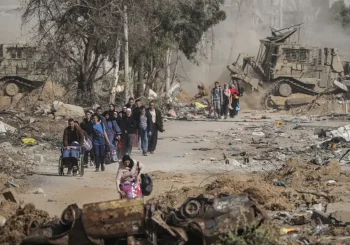According to the Israeli human rights organization Yesh Din, there were documented instances of settlers attacking Palestinians in the West Bank on 100 separate occasions, spanning at least 62 different locations from 7 October to 22 October, with the actual figures likely higher in the subsequent week.
As reported by B’tselem, another human rights organization, approximately 963 Palestinians have faced displacement from 1In the three weeks following the Hamas-led 7 October attack on Israel, the death toll among West Bank Palestinians has risen to over 200, according to a United Nations statistic, primarily due to confrontations with Israeli Defense Force soldiers.
The violence that ensued in the past month has made 2023 the deadliest year for West Bank residents in at least 15 years.
There has been a notable surge in violent incidents involving Palestinians and Israeli settlers. Human rights organizations have documented documented an uptick in armed settler-initiated assaults, encompassing invasions of Palestinian villages, property vandalism, and deliberate destruction of crops.
This surge in violence, however, is indicative of a broader trend.Recent United Nations data from September highlights that 12 percent of Palestinian herding communities in the West Bank faced forced displacement from their homes due to intimidation and violence from settlers. Notably, this disturbing trend has been fueled partly by the influence of a group of far-right ministers within Israeli Prime Minister Benjamin Netanyahu’s cabinet.
Israeli settlers, emboldened by this environment, have intensified their assaults on Palestinian communities in the West Bank. Groups of settler vigilantes, some utilizing all-terrain vehicles, have been responsible for setting fire to Palestinian homes. Tragically, a Palestinian man was fatally shot by a Jewish settler while harvesting olives on 29 October.
The actions of settlers have resulted in the displacement of hundreds of Palestinians from their homes, and there is a concerning sense of impunity in their behavior. This has instilled fears among West Bank Palestinians that the current volatile situation may foreshadow a broader campaign of violence and forced expulsion.
6 communities in the West Bank since 7 October as a consequence of the attacks. The Office for the Coordination of Humanitarian Affairs (OCHA) has documented even higher numbers, noting that 1,149 individuals from 15 herding communities have experienced displacement attributable to both settler violence and restrictions on land access.
The West Bank, captured by Israel from Jordan in the 1967 War, has remained under military occupation for decades. Palestinians envision the West Bank as an integral part of a prospective independent state that includes Gaza and East Jerusalem.
Over the past decades, Israel has allowed an influx of settlers. However, according to international law as well as the consensus of the international community, the West Bank constitutes unlawfully occupied Palestinian land.
Approximately 700,000 Jewish settlers currently reside in the West Bank, with a considerable portion living close to the Israeli border. In the context of a two-state agreement, a substantial number of these settlers, estimated at around 185,000 two years ago and likely to have increased since then, would need to relocate from the West Bank.
It is not only villagers that have to bear the wrath of the IDF. Israel conducted an air strike in Jenin in the northern occupied West Bank on Sunday, 22 October, claiming that Hamas was using a mosque as a “terrorist compound.” Palestinian Authority officials reported two casualties resulting from the strike on the Al Ansar mosque.
While the Israeli military frequently conducts raids in the West Bank, the use of airstrikes in this region is less common compared to the tactics employed in Hamas-controlled Gaza. The IDF stated that the individuals killed were associated with the Hamas and Palestinian Islamic Jihad groups, and they were allegedly organizing an “imminent terror attack.”
Residents of the Jenin refugee camp found themselves caught in the crossfire for eight continuous hours during a relentless episode of shooting and drone attacks on 11 November. The turmoil began when Israeli soldiers entered with a substantial convoy of armored vehicles.
The Israeli army, through loudspeakers, announced a brief two-hour window for civilians to evacuate, prompting people to leave in uncertainty about the duration of the raid. Seeking safety, many families sought refuge in the hospital as the conflict expanded into the city center, with the Israeli army encircling the camp.
Before the significant incursion into Jenin, the Israeli army had been employing armored bulldozers to level streets for several days. This recurrent pattern of raids targeting infrastructure and arresting Palestinians is not new to the residents of this camp, which has been subjected to such operations since its establishment in 1953.
The recent clashes have resulted in at least 14 Palestinians losing their lives, including Hamas fighters. Following a large funeral procession on Friday, they were laid to rest in the Jenin camp cemetery alongside the tombs of other fallen fighters.
Israeli forces conducted yet another major raid on Jenin in the occupied West Bank on Thursday, 16 November, surrounding several hospitals and resulting in at least three fatalities. The attacks, initiated overnight and extending into Friday, also left a minimum of 14 people injured, as reported by Palestinian sources. The raid concluded after several hours of intense operations.
Since 7 October, Israel has carried out overnight raids in the occupied West Bank and East Jerusalem, leading to the arrest of approximately 1,740 Palestinians. The majority of these individuals are being held under laws and military orders that permit detention without trial or formal charges.
Throughout the decades of Israeli occupation of the West Bank, Israel’s government has been developing and imposing several security measures in the occupied lands that have effectively constrained the freedom of movement as well as the freedom of speech of West Bank Palestinians.
Monitoring the communication and movement of millions of Palestinians, the Israeli government has a complex web of systems that controls and restricts the physical movement of people and goods. In November 2021, a Washington Post report showcased how Israel has escalated its “broad surveillance effort” through the use of facial recognition technology called Blue Wolf. Soldiers were encouraged to take photos of Palestinian civilians without their consent to add to Blue Wolf’s database. The database was then used to track the Palestinian populace movement through the West Bank.
There have been multiple reports as well of Israel implementing the use of spyware technology developed by the Israeli army to hack into the smartphones of Palestinians.
In addition, all Palestinians in the occupied territories are required to have Israeli-issued identification cards that control and restrict the freedom movement of Palestinians through hundreds of Israeli military checkpoints, which effectively divide historical communities and threaten family unity.






Comment (1)
[…] post Escalating West Bank Turmoil: Rising Settler Violence, Airstrikes, and Unlawful Arrests first appeared on Egyptian […]